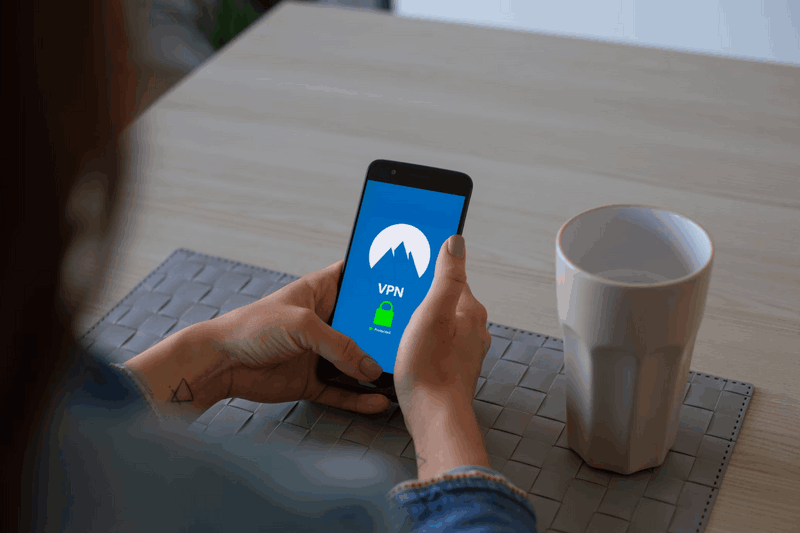A Virtual Private Network (VPN) is a network technology that allows users to connect to the internet securely and privately. VPNs are used to create a secure and encrypted connection between the user’s device and the internet, thereby protecting their online privacy and security. VPNs have become increasingly popular in recent years due to growing concerns about online privacy, cybersecurity threats, and government surveillance. VPNs are widely used by individuals, businesses, and organizations to protect their online communications and data.

The use of VPNs has become a common practice for individuals who are concerned about their online privacy and security. VPNs provide a way for people to browse the internet anonymously without their online activities being tracked by third parties. This is particularly important when accessing public Wi-Fi networks, which are often unsecured and can be easily intercepted by hackers.
VPNs are also used to access geographically restricted content, such as streaming services, websites, and social media platforms. Many countries impose restrictions on the internet, blocking access to certain websites and services. VPNs enable users to bypass these restrictions and access the content they want.
In addition, VPNs are used by businesses to provide secure remote access to their company network for employees who work remotely or travel frequently. This allows employees to access company resources and data securely, regardless of their location.
Finally, VPNs are used for online gambling, which is a growing industry that is becoming increasingly popular worldwide. VPNs are used by online gamblers to access gambling websites that may be restricted in their country, to protect their online privacy, and to avoid surveillance and monitoring by authorities. However, using VPNs for online gambling can also pose risks, which will be discussed further in this outline.
Reasons for using VPN
One of the primary reasons people use VPNs is to ensure their online security and privacy. When you connect to the internet without a VPN, your online activities can be tracked by your Internet Service Provider (ISP), hackers, and other third parties. With a VPN, all your online traffic is encrypted, making it difficult for anyone to intercept and access your data. VPNs also mask your IP address, making it difficult for anyone to track your online activities.
Many websites and online services are restricted to certain countries or regions. For example, streaming services like Netflix, Hulu, and BBC iPlayer offer different content libraries in different countries. With a VPN, you can change your IP address and connect to a server in a different country, allowing you to access content that is not available in your location.
VPNs are also used to bypass censorship and monitoring by governments and other authorities. In some countries, certain websites and social media platforms are blocked, and accessing them can result in legal consequences. By using a VPN, you can access these sites without revealing your real IP address or location, making it difficult for authorities to monitor your online activities.
VPNs are commonly used by businesses to provide secure remote access to their company network. With a VPN, employees can securely connect to the company network from anywhere, even when using public Wi-Fi networks. This helps businesses to maintain data security and prevent unauthorized access to their sensitive information.
Online gambling is a growing industry, and VPNs are commonly used by gamblers to access online gambling sites that may be restricted in their country. VPNs allow users to connect to servers in other countries, making it appear as though they are located in a country where the site is allowed. VPNs can also be used to protect the user’s privacy and avoid surveillance and monitoring by authorities. However, using a VPN for online gambling can also pose risks, such as violating the site’s terms of service and exposing the user to legal consequences.
VPN and Gambling
Online gambling is a popular activity that involves playing games of chance or betting on sports events over the Internet. Online gambling offers the convenience of playing from home or on-the-go and provides access to a wide range of games and sports events. Some of the most popular forms of online gambling include online casinos, sports betting, and poker.
The legal status of online gambling varies from country to country. In some countries, online gambling is fully legalized and regulated, while in others, it is prohibited or heavily restricted. In the United States, for example, online gambling is only legal in a few states, while in most states, it is illegal. It’s important to note that even in countries where online gambling is legal, there are often restrictions on the types of games that can be offered and the age and location of the players.
VPNs are commonly used in online gambling for a variety of reasons. One of the primary reasons is to access online casinos that are restricted in their country. For example, in some countries, online casinos for real money in hand are prohibited or heavily regulated. By using a VPN, users can connect to a server in a country where online casinos are legal, allowing them to access the site and play their favorite games.
VPNs can also be used to protect the user’s privacy and avoid surveillance and monitoring by authorities. Online gambling can be a sensitive topic in some countries, and using a VPN can help to keep the user’s online activities private.
Using a VPN in online gambling can also pose risks. For example, many online casinos prohibit the use of VPNs, and using one can result in the user’s account being suspended or even terminated. In addition, using a VPN to access online casinos that are restricted in the user’s country may violate the site’s terms of service and expose the user to legal consequences.
Overall, while using a VPN can provide benefits in online gambling, it’s important to be aware of the risks and use VPNs responsibly. Users should also ensure that they are using a reputable VPN provider to ensure their security and privacy.
How VPNs work
VPNs work by creating a secure and private connection between your device and a VPN server, which can be located anywhere in the world. This connection is established through a process of encryption and tunneling.
Encryption is the process of converting data into a secure code that can only be deciphered with the correct decryption key. When you use a VPN, all of your internet traffic is encrypted before it leaves your device and is sent through a tunnel to the VPN server. This makes it difficult for anyone to intercept and access your data, including your ISP, hackers, and other third parties.
Tunneling involves encapsulating your internet traffic inside a secure “tunnel” between your device and the VPN server. This tunnel is created using a VPN protocol, which determines the rules and procedures for how the data is encapsulated and transmitted.
There are several VPN protocols available, each with its own strengths and weaknesses. Some of the most common protocols include:
- OpenVPN: a highly secure and versatile protocol that is widely used for its flexibility and compatibility with different platforms and devices.
- L2TP/IPSec: a protocol that provides strong encryption and is commonly used for secure remote access to company networks.
- PPTP: an older and less secure protocol that is still widely used due to its compatibility with older devices and operating systems.
- SSTP: a protocol that is specifically designed for use with Windows operating systems and provides strong encryption and security.
VPN servers are the backbone of the VPN network. They are the intermediary between your device and the internet, and all your internet traffic passes through them. VPN servers can be located anywhere in the world and are often used to access geographically restricted content or to bypass censorship and monitoring.
When you connect to a VPN server, your device is assigned a new IP address that corresponds to the location of the server. This IP address is used to identify your device on the internet, and by using a different IP address, you can mask your real location and make it appear as though you are located in a different country. This is how VPNs allow you to access content that may be restricted in your location, such as online casinos, for real money.
Overall
In conclusion, VPNs are powerful tools that provide many benefits for users, including enhanced security and privacy, access to geographically restricted content, and the ability to bypass censorship and monitoring. By encrypting and tunneling internet traffic through a VPN server, users can keep their online activities private and avoid surveillance by third parties.
However, it’s important to be aware of the risks and limitations of VPNs. Using VPNs to engage in illegal activities or to violate the terms of service of online services can result in legal consequences, and VPNs may not be effective in all situations, such as protecting against malware or phishing attacks.
Additionally, not all VPN services are created equal, and users should take care to choose a reputable and trustworthy VPN provider that has a strong track record of security and privacy. Overall, by using VPNs responsibly and understanding their limitations, users can enjoy the many benefits that VPNs provide while staying safe and secure online.
Disclosure: If we like a product or service, we might refer them to our readers via an affiliate link, which means we may receive a referral commission from the sale if you buy the product that we recommended, read more about that in our affiliate disclosure.
Read More: World News | Entertainment News | Celeb News
Tech Follows





